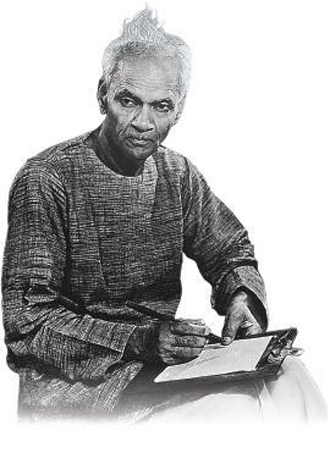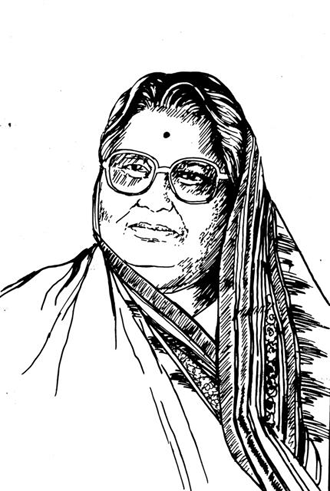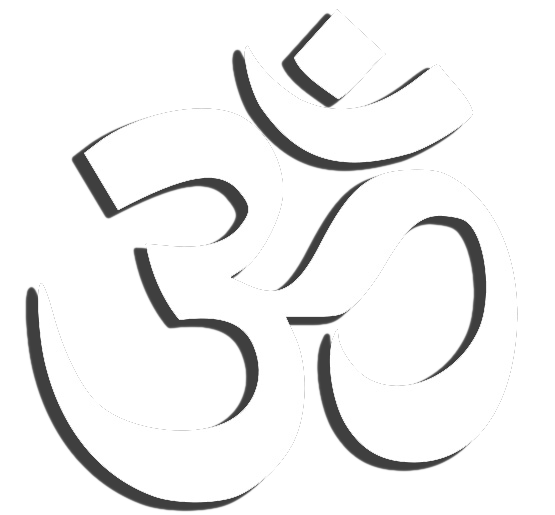
KARMA AND GOD
A man is free to do anything; but there is no choice regarding the selection of its consequences.

HUMAN DIGNITY
He alone is a true warrior who maintains his integrity, courage, and patience in adversity.

HEALTHY LIFE
There are two ways to be happy: minimize your needs; and live in harmony with the circumstances.

AWAKENING SOCIETY
To improve oneself to the level at which one can serve others is the only worthy ambition.
About Us
Gayatri Gyan Mandir is established with the grace and blessing of pujya gurudev, the seer-saint, vedmoorti taponisth pandit Shriram Sharma Acharya at 5N371 Route 53(Rohlwing Rd.) Itasca, Illinois USA. It is the first gayatri mandir in North America affiliated to All World Gayatri Pariwar, Shantikunj Hardwar India. All are invited with friends and family.
Upcoming Events
MANDIR TIMINGS
Open Daily – 8:00 AM to 8:00 PMRegular Events
Gayatri Gyan Mandir, Chicago exists for you and you are always welcome. Gayatri Gyan Mandir hosts a variety of events. Our regular events include Daily Prarthna and Arti, Maun Jaap, Yagna and Sanskar, Yoga Class, Bal Sanskar Kendra and more.
When major events or festivals are planned, the timings for the regular events may change or events may be cancelled.
Gayatri Gyan Mandir Phone Swadhyay
We will read and discuss literature written by P P Gurudev Pandit Shriram Sharma Acharya.
You can join the phone swadhyay using the following dial in and access code:
- Dial-in number: 1(712) 432-1500
- Access code: 181968#
- Time: Every Thursday, 8:00 PM CT - 9:00 PM CT
If you have any questions regarding phone swadhyay, you can reach the mandir authorities at: 630-250-8400.
Puja / Sanskar
The ancient Indian rishis were scientists of spirituality, consciousness and Nature. Their acumen into the deepest depth of human mind had enabled them to develop a perfect science of systematic refinement and escalation of intrinsic faith and inherent tendencies of human self. They had developed the system of shodash sanskaras – sixteen sacraments.
The combination of powerful mantras and procedures of yagya associated with each of these rituals had resulted from long-term dedicated research conducted by the rishis.
We offer following Puja / Sanskar at Mandir, your residence or place of your choice. Please see this documents for making required preparations.
Punswan Sanskar (Baby Showers)
The Punsvan Sanskar (Baby Showers) Performed during the period of pregnancy, invoking blessings for Divine protection for his/her bright future. The sanskar is normally performed when the child is in the form of a fetus – three months old in the mother’s womb. However, it can be performed after three months also. A specific herbal preparation energized in the sacrificial fire of yagya is given to the mother to reach the fetus. This special ‘treatment’ performed with chanting of mantras during a yagya strengthens health y development of the gross (physical), subtle (mental) and astral (conscious) body of the child.
The experiments on the Punsvan sanskar (baby showers) have revealed startling results: the mothers, who were prone to abortion or whose earlier issues were subjected to metabolic system’s deficiencies or to some genetic disorders since birth, have delivered health y babies after this sanskar . It has now been accepted by the research ers that the charu or purodash (herbal preparation) processed under the vitally charged vapors of yagya affects the cellular and molecular (including genetic) systems.
Namkaran Sanskar (Naming Ceremony)
The ceremony of naming the child – A sacrament for imposing of divinity in newly-born human child. The Namkaran Sanskar (Naming Ceremony) of the child is normally performed on the tenth day after birth, but can be performed within a month or whenever name is given to child. It is also a sacrament for imposition of divinity in a newly born child. During this ceremony, the importance and education is given to parent and other family members that the child should be given the atmosphere where his/her inherent qualities can be awakened and undesirable traces of previous birth can be uprooted. The child should be named in a manner that is meaningful and reflects a noble quality. During Namkaran Sanskar parents are encouraged that child is also for society & should be encouraged to be friendly with other family members, neighbor & whole world.
Annaprashan Sanskar
Administering food to the child for the first time – Sowing the seed of purity in Annamaya-Kosh of the child. Performed at the age of 6 months or when a child starts eating solid food for the first time. The food is offered to Yagya Bhagvan first and then given to the child. The education for eating leftovers of yagya means sacrifice for the animal kingdom and the poor in our society, as mentioned in Geeta. The aim of this sanskar a is sowing the seeds of purity in Annamaya Kosh of the child and is performed for healthy growth and strength of the body. It teaches the importance of piousness of Anna. Scriptures say, “Aahar shudhou satvashudhihi” meaning if you eat pious food your mind will be pious. Food is not for the taste but for healthy growth of the mind.
Mundan Sanskar (Tonsure Ceremony)
The Mundan Sanskar (tonsure ceremony) of children – Eradication of beastly tendencies & sowing seeds. It is performed at the age between 1 and 3 years regardless of gender. Nowhere in our scriptures are mentioned the differences between a girl and a boy. In fact, the Vedas say, “Dash putra sama yasya shilvati soota”, meaning a moral girl is equivalent of ten boys. It aims at eradication of beastly tendencies and sowing seeds of cultural consciousness in the child. It is also performed for harmonious titillation of the nerves and proper development of the brain. It is said that birth hair carries undesirable ideas and traits from past birth. So they need to be removed and new ideas full of eminence should be grown in its place. Parents are given education that the success of life is in using our talents, capabilities, and intelligence to benefit the world. Please speak to one of us for performing Mundan Sanskar.
Vidyarambha Sanskar
To initiate development of mind and install intellectual competence in the child.This sanskar is performed at the age when a child starts initial schooling- generally between 4-6 years. The Vidhyarambha sanskar is indeed the righteous initiation of knowledge. It is performed to initiate development of mind and to instill intellectual competence in a child. School and College teaching may make a child ‘learned’ and help attain material prosperity, but true knowledge comes through the arousal and training of the sentimental core, righteous orientation of thoughts and appraisal and aspiration of the divine purpose of life. Attainment of Vidhya meets these objectives in a natural way.
Yagyopaveet Sanskar
The sacred thread ceremony – Installation of the principles of Indian culture – taking pledge to lead disciplines, dignified spiritual life. The most important sanskar for teenagers and youth, regardless of gender. It indeed gives “new birth” ( dwijatva ) to a person. The development of personality coherent with the dignity of human-being begins only after one adopts certain moral values and disciplines of humanity and enlightens his/her mind as well as inner self. The Yagyopaveet sanskar is performed to channelize this development. The initiation of the Gayatri Mantra and experiments of spiritual elevation is associated with this sanskar.
Acharya Sharma eliminated all misconceptions and illusions associated with Yagyopaveet and Gayatri. He revived the methods of performing this sanskar and propagated the universality of Yagyopaveet and Gayatri and made that knowledge available and attainable for all humans, without any discrimination of sex, caste, religion, creed, or social status. He also invoked the discipline of maintaining shikha (hair knot) on head. This shikha is placed at a point, which is very important for positive impact of yoga and meditation. It lies at a special junction of many nerves, which are linked with intellectual processing and memory registration in the brain and is found to have a controlling effect on harmonious functioning of the endocrine system.
Deeksha Sanskar
To invoke patronage of the Divine Power – dedication of the disciple to his/her Divine Guide.
Vivah Sanskar
The Marriage ceremony – Sacred union of two souls – An entry into the dignified family life.
Vanparshtya Sanskar
Vanprastha Sanskar (Dedicating the retired life to the community service).
A unique feature of Divine Indian culture – Pledge to devote the remaining period of life in the service of humanity.
Antyeshthee Sanskar (Last Rites)
The cremation of mortal remains – Inculcation of belief in the immortality of soul and transience of physical body.
Shradhhya Tarpan Sanskar (Prayers to the departed soul)
To remember and pay homage to the deceased, departed ancestors for seeking their blessings.
Janma Divas Sanskar (Birthday Celebration)
A sacrament to contemplate upon the significance of the human life and chalking out plans for future developments and progress. The way birthdays of God Ram and Krishna celebrated – everyone should also celebrate their own birth day with same intensity at any age. The human body is made of 5 elements – Water, Fire, Earth, Air & Aakash (Ether). On that day – one should pay respect toward these elements and vow to effective utilization and preservation for upcoming generation. This also helps in solving Global worming problem. Along with that, one promise to leave a bad habit and gain a good habit to go toward divinity. If it is followed in every birthday then it is believed that one day human will become almost perfect and very close to God.
Vivah Divas Sanskar (Marriage Anniversary)
Ceremony to celebrate the day of marriage – Self introspection about one’s marital responsibilities – its attainment and discharge. It is a very important sanskar for today’s world. It is like renewing the marriage – recall the promises and commitment made to each other in front of fire during marriage. During the marriage due to so many steps and tiredness involved – normally the couple couldn’t focus on the teachings and steps of marriage. By this sanskar – the couple can focus on rituals and teachings & do review of marriage life the way Vedic methods explain. There are proper steps & guidelines on responsibility of couples toward each other, and their combined responsibility for society (saptpadi).
YUVA AND BAL SANSKAR KENDRA
Registration NOW OPEN!Patron Founders
Pt. Sriram Sharma Acharya
Shriram Sharma Acharya, a pioneer of spiritual renaissance was born on 20th September 1911, in Anwalkheda, Agra District. He scrupulously carried out the biddings of his Guru, a great Himalayan Yogi, when he was fifteen years of age.
A sage, a visionary and a reformer, the Acharya initiated a movement for transformation of era, lived a disciplined life of devout austerity, visited the Himalayas several times and attained spiritual eminence.
The Gayatri Pariwar fraternity with its more 3000 social reform centers (Shakti-peeths) are his greatest contributions to the modern world.He translated the entire Vedic Vangmaya and accomplished a feat of writing more than 3000 books on all aspects of life.
The Acharya, Great devotee of Gayatri lived an ideal life for 80 years and voluntarily shed his physical sheath on Gayatri Jayanti, 2nd June 1990.
Mata Bhagwati Devi Sharma
Bhagwati Devi Sharma was an Indian social reformer and a great devotee of Gayatri Mantra. As a cofounder of All World Gayatri Pariwar she started various social upliftment programs and successfully organised a series of Ashwamedha Yagyas. She also published Bhashya of four Vedas.
When Gurudev took Mahasamadhi on June 02, 1990, Gayatri Jayanti day, Mataji took over all the responsibilities of the mission and carried them over with great courage.
In October 1990, under Mataji’s guidance, Grand Shraddhanjali Samaroh, a program to pay homage to Gurudev, was organized . Over 15,00,000 devotees from all over the world participated in it, and resolved to carry-on the works of Gurudev, for dissemination of philosophy of Gayatri and Yagna.
In 1992, on Gayatri Jayanti Day, Mataji disclosed about Gurudev’s message from subtle and astral realms for the spread of Dev- Sanskriti (divine Indian culture or religious culture) all over the world for which series of Grand Ashwamedha Yagyas were to be performed. The series of Ashwamedha Yagnas started from Jaipur in Nov.1992.
Till now, twenty-seven such grand Ashwamedha Yagnas have been celebrated in INDIA and abroads, besides the grand Anwalkheda (birthplace of Acharyaji near Agra, city of Taj) Pratham Poornahuti Samaroh in 1995.
Present Mentor
Dr. Pranav Pandya
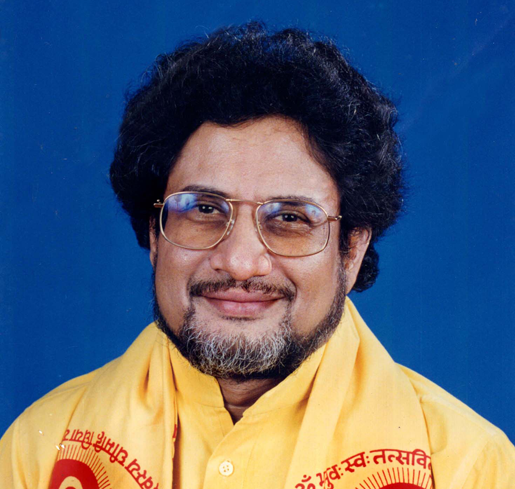
A close and direct disciple of Pandit Shriram Sharma Achaya, Dr. Pranav Pandya is renouned world over as a pioneer of scientific spirituality . As the Head of the Organization, he disseminated the message of Indian culture , in its true spirit, across the globe and established branches of Gayatri Pariwar in over 80 countries.
Shraddheya Shailbala Pandya
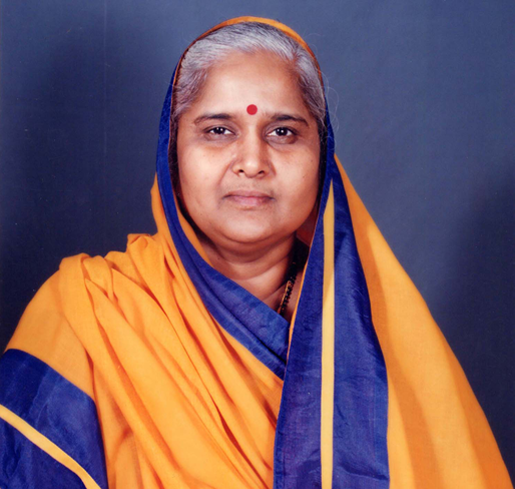
Embodiment of boundless love and affection for each and everyone, Shraddheya Shailbala Pandya is revered as Jiji by all parijans of Gayatri Pariwar. Hundreds of parijans come to Shantikunj , Haridwar everyday to seek blessings of Guru satta from her. Her mere darshan and compassionate words alleviate sufferings of people.


